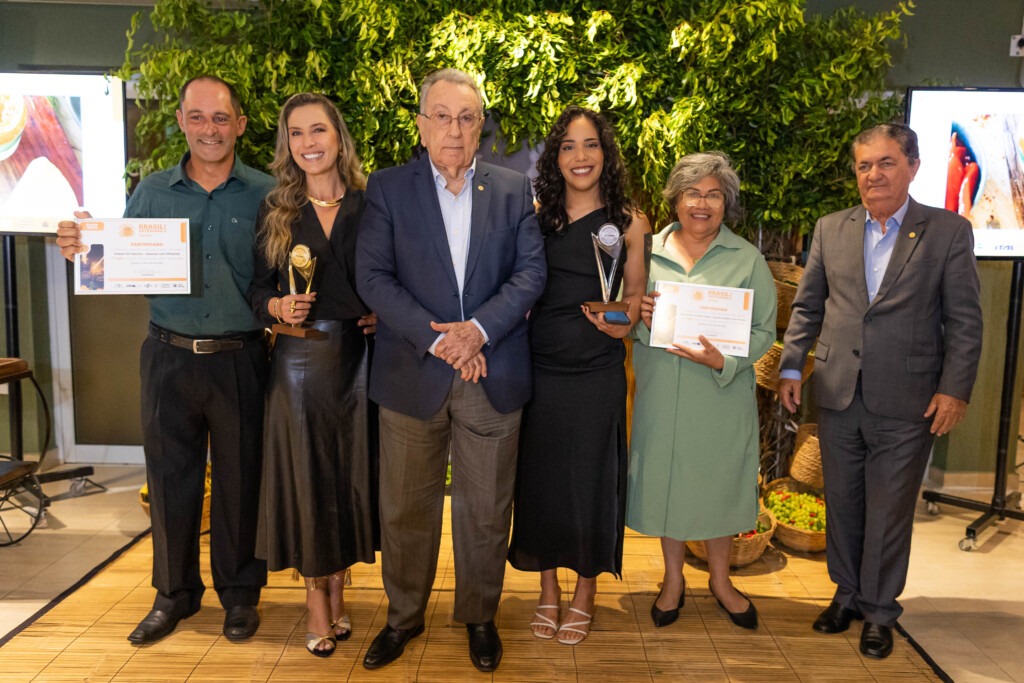Artisanal jams from across the country were celebrated in Brasília at the CNA Brazil Artisanal Award 2025. Among the highlights was a small jam-making business in the Amazon, showing how local biodiversity can power sustainable, high-quality food production.
On the evening of May 13th, Brazilian farmers from all over the country gathered in Brasília for the final ceremony of the CNA Brazil Artisanal Award 2025 for Jams. Held at the headquarters of the Brazilian Confederation of Agriculture and Livestock (CNA), the event honored farmers whose jams reflect the diverse flavors and traditions of Brazilian regions, from mountain citrus fruits to forest-born ingredients.
A Celebration of Craft and Territory
Organized by CNA in partnership with Sebrae, Embrapa Food Technology, and ITAL (the Institute of Food Technology, a leading research center linked to the São Paulo State Secretariat for Agriculture and Supply), the award was created to value small and medium-scale rural food businesses that produce artisanal and traditional foods in line with Brazil’s legal standards.
This first edition focused on artisanal jams, with two categories:
Single-flavor jams, featuring a single fruit or ingredient.
Mixed-flavor jams, combining different fruits or spices.
Each farmer could submit up to two products. After a technical evaluation and a popular vote, the best five in each category were selected and awarded with certificates, cash prizes, and gold, silver, or bronze seals as a mark of excellence.

From Citrus to Cupuaçu: Brazil’s Top Artisanal Jams
The award brought attention to a wide variety of Brazilian ingredients. In the single-flavor category, first place went to Casa Piovene from Gramado (RS), with a bergamot jam. Second place went to Fazenda Bacuri from Bragança (PA), with an organic bacuri jam, a fruit native to the Amazon.
Other winners came from São Paulo, Santa Catarina, and Rio Grande do Sul, showcasing the diversity of small-scale jam production across Brazil.
In the mixed-flavor category, the winning jam was a bold combination of pineapple and chili by Geleias Do Rancho from Minas Gerais. Other standout products included cupuaçu with chili, butiá with cachaça, and cashew with chili.
Amazonian Roots: The Story Behind Fazenda Bacuri
Among the finalists, one stood out for the exceptional quality of its jams and its strong environmental commitment. Fazenda Bacuri, a family-run agroforestry project in the Amazon, was recognized in both categories. It represents a remarkable success story in Brazilian sustainable farming.
Located in Bragança, Pará, the farm is led by Hortência Maria Osaqui. She returned in 2010 to continue the work started by her father in the 1970s. Originally focused on forest regeneration through native species like the bacurizeiro (Platonia insignis), the farm transitioned to value-added food production with a clear purpose: to turn local biodiversity into economic opportunity without deforestation.
Organic, Sustainable, and Award-Winning
Fazenda Bacuri is today the first family-run agroindustry in Brazil certified organic for all three major markets: Brazil, the European Union, and the United States. All key ingredients, except for the organic sugar, are produced locally on the farm. This includes Amazonian fruits like bacuri, cupuaçu, and açaí.
Its product line includes jams, compotes, and artisanal liqueurs, all developed through sustainable processes and traditional knowledge passed down through generations. Visitors can also explore the preserved 64 hectares of native forest through experiential tourism, learning firsthand about agroforestry and food innovation.
“Participating in this award is a way for me to honor my mother, who is the foundation of everything I know about cooking and jam-making,” says Hortência. “It also represents recognition for the work we’ve been doing here in the Amazon.”
AgroBR: Opening Doors to International Markets
Fazenda Bacuri is part of agroBR, a CNA initiative in partnership with ApexBrasil that supports small and medium-scale farmers in accessing international markets. Through tailored guidance and market intelligence, the program helps rural entrepreneurs like Hortência navigate exports and promote high-value, sustainable Brazilian foods to the world.